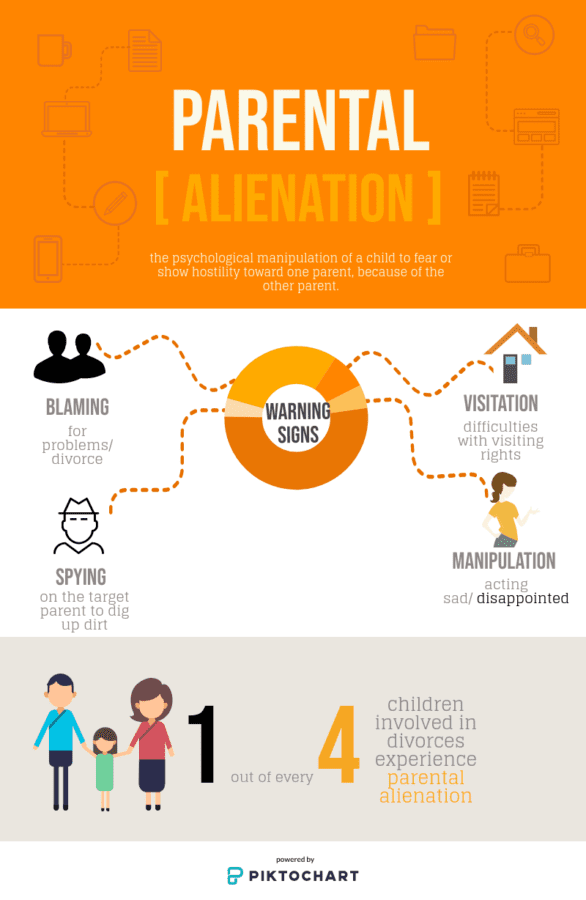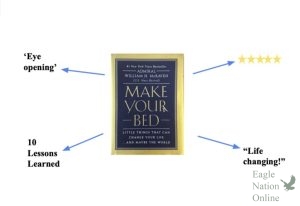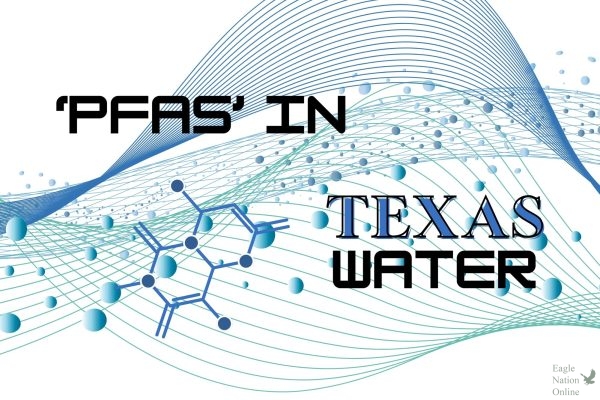Statistics, warning signs reveal harsh reality of parental alienation syndrome
This infographic presents statistics and symptoms of parental alienation. Parental alienation is the manipulation of a child to make them fear or be hostile toward the other parent. “You as kids want to love both mom and dad,” government teacher Rod McCall said. “When they are telling you, ‘if you love me, you will hate them,’ what Mom and Dad are doing are putting you in a very difficult situation.”
October 17, 2019
Parental alienation kills – it kills families. It kills relationships. It kills people. Government teacher Rod McCall wrote about his experience with this topic in his book For the Love of Eryk after his son, Eryk McCall, was killed by his mother before she took her own life eight years ago. Now, McCall travels to conventions around the U.S. to tell his story about overcoming parental alienation and how to stop it.
Parental alienation is typically found amid a divorce or separation and is defined as the psychological manipulation by one parent to make the child or children afraid or hostile toward the other parent.
“Some will call it parent alienation. Some will call it parental alienation syndrome. Some will call it attachment-based parental alienation,” McCall said. “Whatever it is – you love both parents, and you love them equally. It is the deliberate manipulation of one parent to degrade the relationship you have with the other parent.”
According to the American Psychological Association, 40 to 50 percent of marriages end in divorce, and according to Science Daily, one out of four children involved in a divorce experience parent alienation.
“You as kids want to love both mom and dad,” McCall said. “When they are telling you, ‘if you love me, you will hate them.’ What Mom and Dad are doing are putting you in a very difficult situation where you want to show your love for Mom by doing what she says, and you want to show your love for Dad by doing what he says, but Mom hates Dad, or Dad hates Mom way more than they love you.”
Warning signs for PAS are one parent blaming the target parent for various problems, including the divorce, using children to spy on the other parent, being difficult with visitation rights, and acting disappointed in the child if they have a good time with the other parent.
“There are a whole list of things that I hear, and I question: ‘Are these your words, or are these Mom and Dad’s’,” McCall said. “At the end of the day, as children, you should never know really what is going on in the court battle.”
As explained by McCall, the court typically decides that the child will live with “Parent A” and visit every other weekend with “Parent B.” The alienator usually identifies as Parent A.
“It is not male only or female only,” McCall said. “It’s evenly divided. It is not a race issue. It’s not a religious issue. The only demographic that I have found in common that the alienator has, is that they tend to have more money.”
If students believe that they may be experiencing parental alienation syndrome or believe their friend or someone they know may be going through this, the high school counselors are available.
“They (students) can always come and talk to a counselor,” school counselor Julie Cooper said. “It is important for students to learn and notice warning signs for any situation that might give them more information that can help a friend.”
McCall spoke to school counselors about having a screening of “Family Erased,” a documentary that covers the effects of divorce on families and children and the topic of parental alienation.
“It was developed and produced by a friend of mine, and it is about kids who are caught up in divorce,” McCall said. “Sometimes, divorce can become very conflict-driven. You, as children, frequently get used as weapons as one parent fights the other.”
McCall’s book For the Love of Eryk, can be found in the public library or purchased from Amazon.
“Divorce is a very high emotion time for all involved,” McCall said. “My focus is on trying to share that divorce is to end the marriage – it is not to end the family.”

























